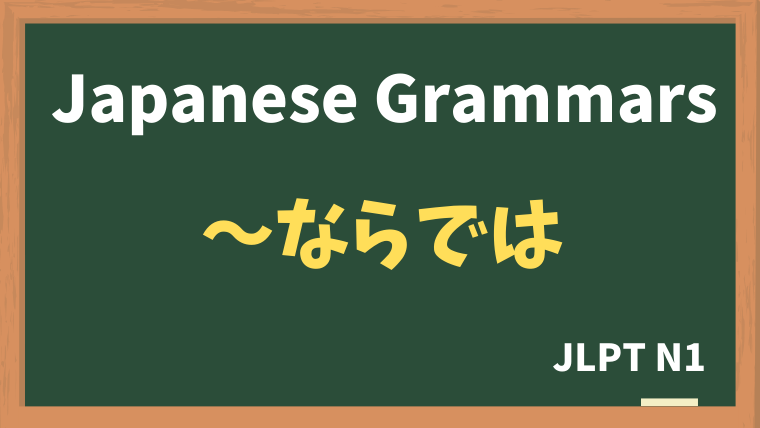
Explanation:〜ならでは
fa-check-circleMeaning
"〜でなければ・・・できない / 〜だけが持っている素晴らしい・・・ / 〜だけが持っている特有の・・・"
その特徴が他ではあまり見られない、そのことは他の人ではできないという意味です。
Used to highlight something unique or distinctive to a particular person, place, or thing. It emphasizes that only this specific subject can provide or offer such a characteristic, experience, or quality. In English, it can be translated as "unique to," "only possible with," or "something only [someone or something] can do."
fa-check-circleForm
N + ならでは(の)
fa-check-circlePoints
- Uniqueness or Exclusivity: "〜ならでは" is used to emphasize that a certain quality, experience, or trait is exclusive to a specific subject. It highlights a characteristic that is irreplaceable or hard to find elsewhere.
- Often Positive: This expression is frequently used in positive contexts to praise or celebrate the distinctive qualities of something or someone.
- Common in Advertisements: It is often used in advertising or promotional language to stress the unique appeal of a product, place, or service.
fa-check-circleJLPT Level
N1
Sample sentenes
納豆は日本ならではの食べ物です。
Natto is a food unique to Japan.
このレザー商品は手作りならではの良さがある。
This leather product has a quality that comes from being handmade.
日本ならではの雰囲気を味わたいなら、京都に行くといいですよ。
If you want to experience the unique atmosphere of Japan, you should visit Kyoto.
トムさんの作文は彼ならではの面白さがある。
Tom's essays have a distinctive charm that is uniquely his.
この文化や習慣はこの国ならではのものだ。
This culture and these customs are unique to this country.
Vocabulary
| Japanese |
English | |
| 雰囲気 | ふんいき | atmosphere |






